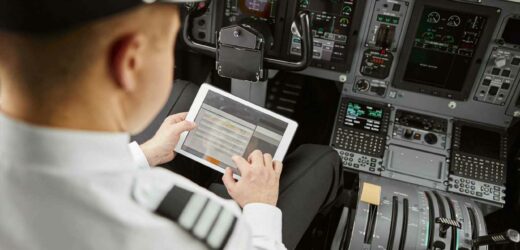AN AIR traffic controller has revealed why pilots avoid saying some numbers over the radio.
There's a very simple reason why some numbers aren't used by pilots, as people on two planes found out the hard way.
Anyone who's heard a pilot speaking to air traffic control might have heard the word "niner" used instead of the number nine.
This is to distinguish between the numbers nine and five, which can sound similar over a plane's radio system.
Add into the mix the fact that a lot of pilots will be speaking English to the air traffic controllers, both of whom might not be native English speakers, making it much easier for mistakes to happen.
Such a small misunderstanding can have huge and catastrophic consequences, so it's important to make sure they don't happen.
Read More on Pilots
I’m a pilot – why nervous passengers should book the first flight of the day
I’m a former pilot – the three scary flying myths that are not true
Aviation blog highskyflying revealed exactly how badly things can go when the pilot and the air traffic controller aren't on the same wavelength.
An article written by an air traffic controller explained how one such occurrence resulted in the deadliest aviation incident on record.
They wrote: "One of the most-often referred-to incidents concerning a misunderstanding occurred at Tenerife North Airport on 27 March, 1977. It is still the deadliest aviation incident we have ever seen.
"Two Boeing 747s collided on the runway resulting in the deaths of 583 people, as a result of a misunderstanding by the flight crew of a plane's departure clearance from the air traffic controller."
Most read in News Travel
I lived on a cruise ship – these are five things you should never do on board
Travellers reveal why you should book the dreaded middle plane seat
The £3.99 travel item that fits in hand luggage – & is a perfect stocking filler
There could be money hidden in your hotel room – here's where to look
In order to reduce the number of misunderstandings, pilots now use very high frequency (VHF) radios which are much clearer and have a lot less static.
Additionally, there are specially trained high frequency radio operators, whose job it is to relay messages between airport and pilot.
The air traffic controller wrote: "I can tell you with little doubt that it is a highly-specialised skill to be an HF operator, requiring a great deal of patience and an attuned ear to master its use."
Also making communication very important is the fact that airports aren't always the easiest thing for a pilot to spot.
Mark Vanhoenacker revealed in his book How to Land a Plane that it’s sometimes very difficult to see an airport's runway, especially when flying at night.
He said: "Most of us think of airports as quite well-lit places and it’s true that the apron areas around the terminal buildings are often brightly illuminated.”
"But taxiways and runways are so subtly lit that picking out an airfield at night, especially in an urban landscape often involves looking for a particularly dark spot.
“Close in, thankfully the approach and runway lights are unmistakable.”
Pilots use equipment such as the plane’s weather sensors, flight instruments and navigation systems to help them land at night.
Mark added that in the event of very poor visibility, a plane will do an “instrument landing” – so using the systems in the cockpit rather than doing it via sight alone.
In this case, pilots will rely on the information from their screens in the cockpit to land – if they really can’t see much else.
Read More on The Sun
Charlotte Crosby ‘mum shamed’ after admitting she’s ‘embarrassed’ by her body
Shopping pro reveals the gifts you should NEVER give at Christmas
Meanwhile, this is what an air traffic controller told a pilot just moments before it almost had a mid-air collision with another aircraft.
And some people think that air traffic controllers have the best job in the world because of these perks.
Source: Read Full Article












